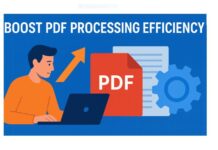In today’s fast-paced digital landscape, ensuring the security of your WordPress site is more vital than ever. As a blogger or a small business owner, you rely on your online presence to connect with your audience and drive sales. But what happens when that space gets threatened by cybercriminals? The stakes are high, and understanding the importance of robust security measures can save you from potential disasters. This article dives into why safeguarding your WordPress site is crucial and offers practical strategies to enhance your online protection.
You’ll discover the pressing need for website security, the risks of neglecting it, and proactive steps you can take to fortify your digital domain. Whether you’re new to WordPress or a seasoned user, this guide is designed to equip you with the knowledge to protect your site effectively. Are you ready to boost your website’s defenses? Let’s get started.
Understanding the Crucial Role of Website Security
Website security is not just a technical concern; it’s a foundational element that affects every aspect of your online presence. When you operate a WordPress site, protecting it goes beyond just keeping your data safe. Your users’ trust hinges on how secure your website is. A breach can lead to loss of sensitive information and damage your reputation.
Why Cybersecurity is Essential for Your WordPress Site
Cyber threats can target any website, but WordPress sites are particularly vulnerable due to their popularity. Failing to secure your site can have dire consequences. Imagine losing customer data or experiencing a complete shutdown because of a cyberattack. Here are some crucial reasons to take cybersecurity seriously:
The Risks of Ignoring Website Security
Neglecting security measures can lead to severe ramifications. A compromised website can serve as a vehicle for malicious attacks. This not only affects your site but also endangers your users. Here are some potential outcomes of poor security practices:
Recognizing Common Security Threats
To effectively safeguard your site, you must know the threats you face. Cybercriminals often employ various tactics, such as:
Understanding these threats enables you to implement targeted defenses.
Implementing Effective Security Measures
Now that you’re aware of the risks, let’s explore some actionable steps to enhance your WordPress security. Taking proactive measures can significantly reduce your vulnerability. Here are some essential tips to consider:
Monitoring and Responding to Security Incidents
Even with strong security measures, incidents can still occur. Being prepared to respond effectively is key. Regularly monitor your site for unusual activity, and have a response plan in place. This might include:
By staying vigilant and informed, you can maintain a secure WordPress site that supports your blogging or business goals.




